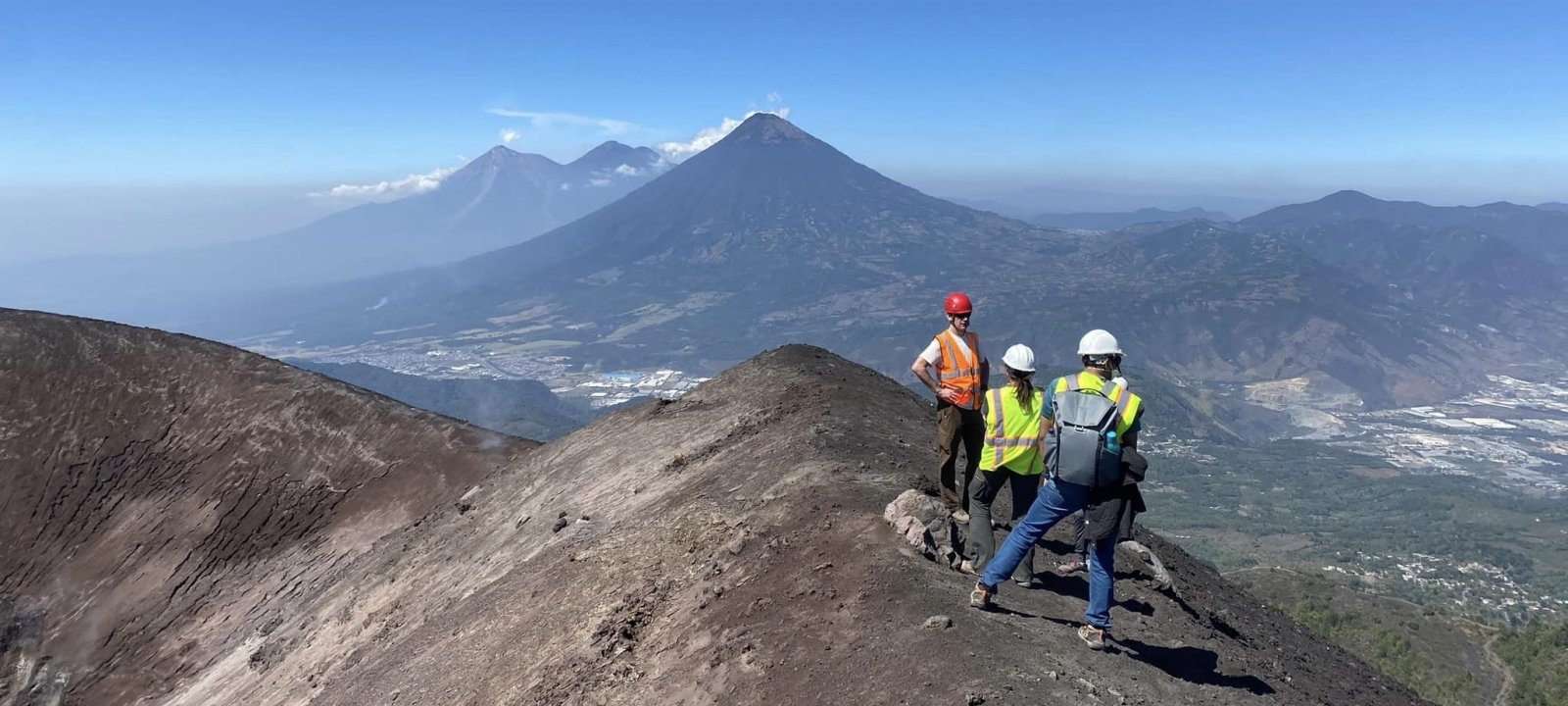Understand and safely manage the Earth, its resources, and natural hazards.
Geological and Mining Engineering and Sciences offers four undergraduate degrees—applied geophysics, geology, geological engineering, and mining engineering. Each has a focus on sustainability. Apply and develop new digital technologies. Balance the safety of our planet with the needs of society.
Request Information
Form loading . . .
Learn from faculty who are active in researching many Earth topics. We focus in hydrogeology, energy and mineral resources, and sustainable mining. We engage in remote sensing, volcanology, and atmospheric sciences. Find out about mineralogy, petrology, paleomagnetism, and seismology. You’ll have endless opportunities for hands-on learning. Join faculty on national and international field trips. Do lab work, Senior Design, Enterprise, undergraduate research, co-ops, and internships. After graduation, you’ll go on to be successful in industry. You can also choose a career in business, government, or academia.
Do not worry if you are not sure which of the four departmental majors is right for you. In the first semester, all students take a one-credit Geo-Orientation course (GE 1100). Learn about each major. Get the opportunity to meet all the departmental faculty members. We are ready to help you tailor your Michigan Tech experience. Find a program to match your interests and aspirations. In the mining industry, there is a demand for graduates in geotechnical engineering. Opportunities are available to work in the Midwest as well as in the West and Alaska.
Balance the safety of our planet and its natural resources with the needs of society. Tomorrow needs engineers and scientists who can meet this challenge. We’re ready. Are you?
Bachelor's Degrees
Join us and discover your potential.
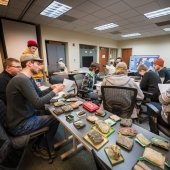
Geological Engineering
Geological engineers apply engineering to solve complex geologic, atmospheric, and environmental problems. These are issues facing humankind. They include site investigations for tunnels, dams, or roads. They involve exploring and harvesting mineral and energy resources while protecting the environment. Their tasks include assessing and mitigating geologic hazards. Studying volcanoes, landslides, and earthquakes is part of the job.
Our Bachelor in Science Geological engineering students intern or co-op with several industries. Mining companies hire our students, as well as geotechnical and geoenvironmental engineering consulting. Students may work with state and federal agencies involved with managing natural resources.
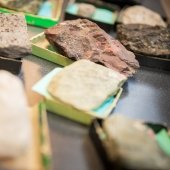
Geology
Geologists study the earth, earth materials, and earth systems such as volcanoes. They understand society's need for natural resources. They also have a responsibility to preserve the environment. Training allows geologists to strike this delicate balance. As a geologist, you can explore and extract minerals or energy resources. Dispose of nuclear and chemical waste. Choose the best sites for structures. Study natural hazards—such as volcanoes or earthquakes. Figure out how to reduce their impact on people. Bachelor's in Science Geology students get internships with geoenvironmental consulting. They may work with mineral exploration industries and state and federal agencies.
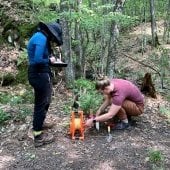
Applied Geophysics
Applied geophysicists use physics-based methods and technology. They view and gather data from the subsurface of the Earth. This is similar to how medical professionals use X-ray and MRI technology. These technologies allow us to see inside the human body. Geophysicists combine geological knowledge with a strong base of mathematics and physics. They are able to identify oil and gas reserves. They can find ore bodies, water supplies, and even anthropogenic or archaeological features. Geophysicists can use this diverse skill in many ways to benefit humankind. They further scientific understanding and protect the environment. Applied Geophysics majors work for or intern with many firms and companies. Industries that characterize sites for environmental contamination may hire our students. Companies involved in water resources, foundations, petroleum, and mineral resources hire applied geophysicists.
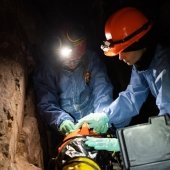
Mining Engineering
Explore and discover mineral resources. Engage in feasibility studies and mine design. Be involved in mine production, mine operation, and mine closure. Mining engineering is multidisciplinary. It applies various aspects of science and cutting edge technology. Mining engineers solve complex, open-ended problems. Many involve the sustainable extraction of minerals from the earth. Mining engineering majors practice drilling rock for blasting. Our students have access to two local mines. They use fixed-wing drones for mapping open pits and stockpiles. They use the uniaxial compressive strength testing machine for rock strength measurements. Students have access to equipment and mining software in class labs. They also do projects and undergraduate research.
Minors
Add to your degree at a flagship technological university with a geological and mining engineering minor. A minor allows you to specialize in a discipline outside of or complementary to your major. We recommend that you begin your minor studies as early as possible in your academic career.
- Applied Geophysics
- Geological Engineering
- Earth Sciences
- Mining
Safely Manage the Earth
Learn to think, conduct research, and apply knowledge. Achieve success in a diverse and changing global environment and global economy. Join us and discover your potential. Enjoy nature during and after your college experience. Geoscientists and engineers often work outside. They may travel the world.
Field Studies
Our curriculum focuses on field studies. Hands-on training and experience are critical to your success. We teach two field courses in the summer. We provide plenty of opportunities for students to see classic and novel field sites. Students visit sites here on the Keweenaw Peninsula and beyond. Recent field trips included Alaska, Utah, and Nicaragua. Our students have experienced Mexico, Newfoundland, Florida, Guatemala, Canada, and Montana.
Beautiful Outdoor Facilities
We are on Michigan’s Keweenaw Peninsula, on the south shore of Lake Superior. Hundreds of miles of rocky coastline surround the peninsula. Isle Royale National Park is nearby. The area offers a unique geology and rugged topography unusual to the Midwest. This area is an international focal point for mineral collectors. It is ideal for a wide variety of geologic studies. The peninsula was also the center of a native copper ore district. It developed into a billion-dollar mining industry. Mining activity led to the creation of the Michigan Mining School more than 100 years ago. Our department is the direct descendent of that original school.
Excellent Indoor Facilities
Our department features world-class computer and analytical laboratory equipment. Labs and research areas include:
- Remote Sensing and Volcanology
- Subsurface Remediation and Visualization
- Seismic Petrophysics
- Environmental Magnetism
- Rock Mechanics
- Environmental Geochemistry
- X-Ray Diffraction
- Subsurface Visualization Lab
- Remote Sensing Institute
- Michigan Tech Research Vessel—R/V Agassiz
- Michigan Tech Volcano Observatory
